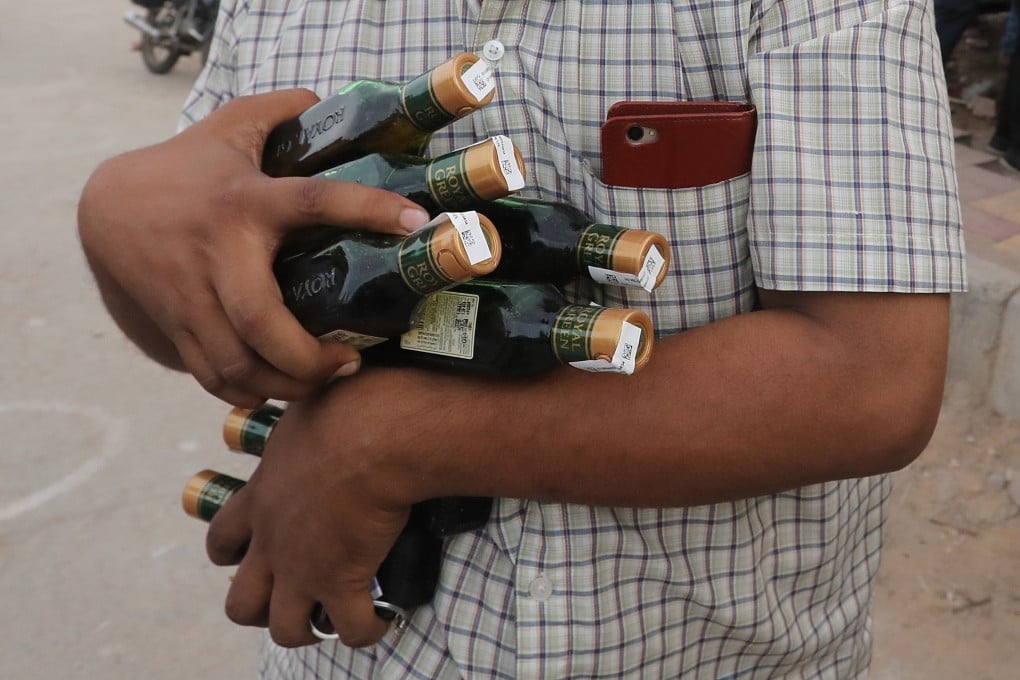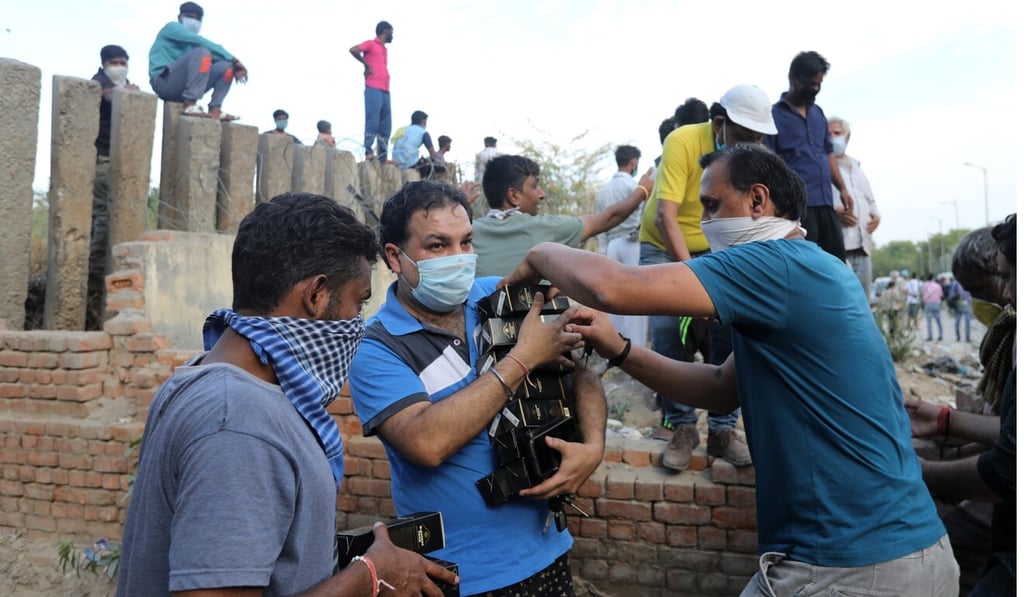Advertisement
India’s resumption of alcohol sales during lockdown is fuelling a rise in domestic violence
- When India imposed its strict coronavirus lockdown in March, alcohol sales were not allowed. But 41 days later, it allowed stores to reopen
- Women’s groups say there has been a rise in reports of abuse, with several groups protesting outside liquor stores
Reading Time:3 minutes
Why you can trust SCMP

A few days ago, Jaidevi Kashyap had to dial 100, India’s emergency police helpline number. Her husband was drunk and had slapped their son in a fit of rage, and broken a fan, lights and furniture. Then he started beating her.
Domestic violence is nothing new for this 39-year-old Delhi resident, but she said her husband’s abuse abated when India went into lockdown in March and alcohol sales were banned.
“It happened only after he got access to alcohol,” she said. “Please get liquor shops closed, at least during the lockdown.”
Advertisement

India initially listed alcohol as a non-essential commodity and prohibited its sale during its extensive coronavirus containment measures. But 41 days into the strict lockdown, the government relented amid concerns over lost tax revenue, and allowed liquor stores to reopen countrywide except in containment zones, imposing a special “corona tax” of 70 per cent in some places.
Advertisement
As soon as that happened, people like Kashyap’s husband rushed to horde liquor, apparently paying much higher prices than usual.
Advertisement
Select Voice
Choose your listening speed
Get through articles 2x faster
1.25x
250 WPM
Slow
Average
Fast
1.25x